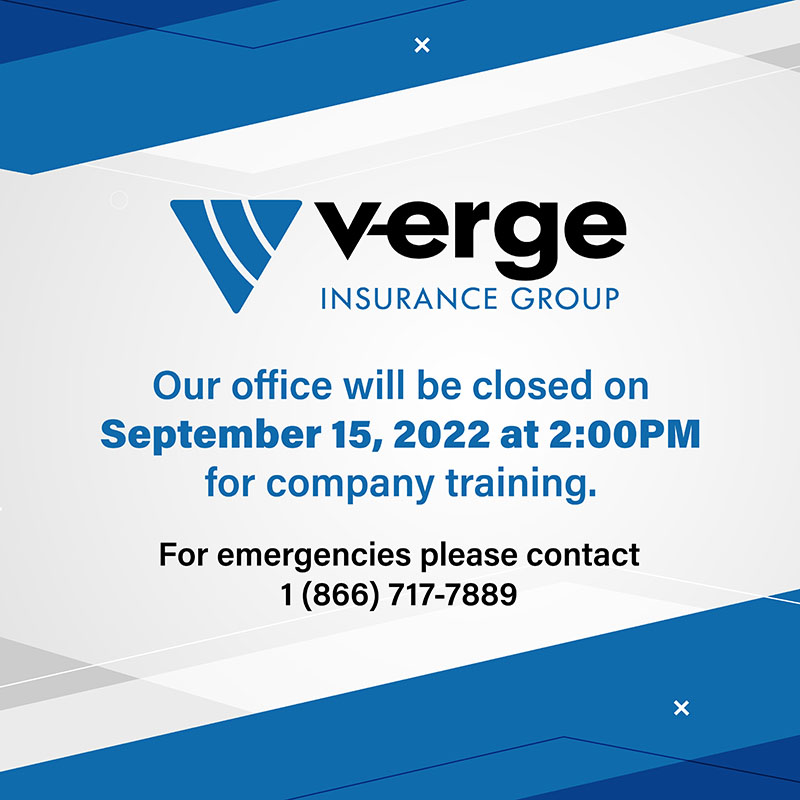Whether you’re starting a new business out of necessity or you’re a natural entrepreneur, you need the right insurance to protect yourself from property and liability losses. Here, we’ll look at the most widely needed types of insurance for businesses.

Starting a New Business? Make Insurance Part of Your Plan
October 29, 2025
I.
- There is a basic insurance package that works for a broad range of small startups. It’s called a business owners policy, or BOP. A BOP is a bundle of different coverages tailored to your business. For example, there is a BOP for restaurants, one for retailers, one for contractors, etc.
- A BOP generally includes property insurance, liability insurance and some degree of income coverage in case your business is shut down by a cause named in your policy. Though a BOP’s coverage limits are not very high, it’s designed to be sufficient for the normal exposures your business faces. If you want to increase your limits, you can do it through various means. For example, you can purchase an umbrella or excess insurance to raise your coverage limits across multiple policies. Your insurance broker can help you with that.
II.
- Alternatively, your broker might recommend that you build your own insurance program. Such a choice typically depends on your projected level of revenue, the value of your business property, and your potential for frequent or severe claims.
- Property insurance covers your building and any improvements you make to a leased building. It also covers your equipment, computers, machinery, and inventory or stock. If you plan to ship, distribute or warehouse products, you may need a special kind of property insurance called cargo insurance. This covers your property from manufacturing to delivery. Or, if you work with property that travels with you, you may need another kind of insurance called inland marine. This protects your items while they’re away from your primary workplace, such as at an art show or jobsite.
- Property insurance typically covers damage from fires, theft, vandalism, water (not floods), explosions and wind. (Some restrictions apply, depending on your location.) You might get a named-perils policy, which specifies the types of damage covered as well as the coverage limits on certain causes of loss. Alternatively, you might get an all-risks policy, which is broader coverage but more expensive. In almost all cases, you must purchase flood insurance separately to cover your structures and business contents from flooding. The cost of flood insurance is based on your projected risk of loss.
Auto insurance
- If your new business relies on a van, truck or car to get the job done, you need commercial auto insurance. This policy covers damage to and theft of your vehicle. It also covers injuries and property damage you cause to others while operating your vehicle. Commercial auto insurance can help with medical payments for your passengers, damage from flying or falling debris, hit-and-runs, and damage done to your vehicle by uninsured motorists.
- Even if you only rent vehicles occasionally or have employees use their own vehicles for work duties, you still need auto insurance. That would be a hired and nonowned policy. It’s important not to take chances with commercial auto insurance, because one fatal accident or crash with an expensive vehicle could be financially devastating to your burgeoning business.
Liability insurance
There are many kinds of liability insurance. The most common is general liability, which all businesses need. This covers costs associated with injuries nonemployees sustain at your establishment, and damage you or your employees cause when off premises but in the course of work. For example, say an employee spills paint on a customer’s carpet or causes a fire at a customer’s home while installing a security system. In both scenarios, general liability would cover you.
- If you are starting up a licensed trade or professional business, such as a dental practice, architectural firm, building contractor company, or realty agency, you need professional liability insurance. This coverage steps in when you make a professional mistake that results in economic damage or personal injury to a client. For this reason, it’s also called errors and omissions insurance.
- Professional liability coverage is critical for any of these trades. Legal bills, court costs, and settlements or court judgments can be astronomical. Without this coverage, you could be bankrupted.
- If you are in a field like manufacturing, construction, fuel delivery or sales, landscaping, boating, paving or demolition, you may need environmental liability insurance. A fuel or chemical spill or leak can cause environmental damage that is expensive to remediate. Your insurance broker will help you craft a policy specifically for your exposures.
- For businesses that serve or sell food or other products, you need coverage for claims that name you as a party responsible for injuries or damage stemming from the use of a product you sold. This coverage is known as product liability insurance.
Factor insurance into your long-term business plan
Although insurance is one of those costs everyone groans at, it is a cost of doing business. Having the right insurance indicates that you intend to be a good business partner and a resilient entity. The policies mentioned above are the basics. If you have employees, you need another set of coverages, such as workers’ compensation and employment practices liability insurance. Those protect your employees, your company, and its owners if an employee is harmed or alleges harm in the workplace.
- If you are starting in contracting or professional services, you may need a surety bond. Most insurance brokerages can handle simple bonds required for licensing or small projects, or refer you to a surety bond specialist for more complex bond requirements.
- If you have a seasonal operation, such as landscaping, retail or catering, know that your insurance coverage and costs can be built and billed to reflect your revenue and inventory fluctuations.
- Working with an insurance broker can be a big benefit for startup companies, because guessing what coverages you need and which policies are optional can be risky. A broker can guide you through the process and find the needed coverages at price points aligned with your budget. The goal is to affordably protect your new enterprise so you can get it going and keep it growing.
Disclaimer
This content is for informational purposes only and not for the purpose of providing, financial, medical or legal advice. You should contact your attorney, doctor, broker or advisor to obtain advice with respect to any particular issue or problem.
Copyright © 2025 Applied Systems Inc. All rights reserved.


